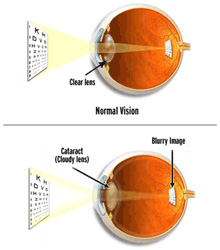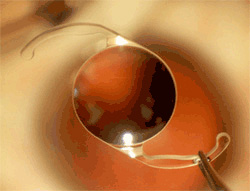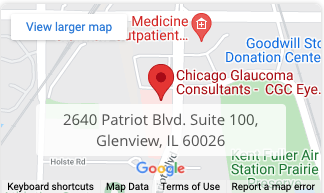Cataract Specialist
What Are Cataracts
A cataract is a painless, cloudy area in the lens of the eye that blocks the passage of light to the retina, which causes vision impairment. Cataracts sometimes may remain small and may not be noticeable. They may not seriously affect vision, and some cataracts do not need to be removed. However, many cataracts grow larger or more dense over time, often causing severe vision changes.
Not all cataracts impair vision or affect daily living. But when they do, common symptoms include:
- Cloudy, fuzzy, foggy or filmy vision.
- Glare from lamps or the sun, which may be severe.
- Difficulty driving at night due to glare from headlights.
- Frequent changes in eyeglass prescription.
- Double vision.
- Second sight – temporary improvement in near vision (such as that needed for reading) in farsighted people.
- Difficulty performing daily activities because of vision problems.

Who Do Cataracts Affect?
Aging and exposure to ultraviolet radiation can cause cataracts. People may also experience cataracts after an eye injury, as a result of eye disease, after the use of certain medications, or as a result of medical conditions such as diabetes.
Genetics may be another risk factor for developing cataracts. People with a family history are more likely to develop them. The color of your eye may also contribute to the development of cataracts. People with darker-colored irises appear to have an increased risk of developing them.
How to Avoid Cataracts
- Have your vision checked regularly for early detection.
- Wear sunglasses with 100% UV Protection.
- Don’t smoke.
- Wear protective eye gear, when active, to avoid eye trauma.
How Are Cataracts Treated?
Cataracts are usually treated with surgery if vision problems are interfering with the person’s quality of life. Cataract surgery is very common and currently has the highest success rate of any surgical procedure. It involves removing the natural lens of the eye, which contains the cataract. The lens is then usually replaced with an artificial lens called an intraocular lens (IOL) implant. Today, there are technological advancements that allow patients to become less dependent of glasses after cataract surgery. Ask one of our doctors if you are a candidate for these premium lenses.
~Information graciously provided by www.Alcon.com

Our Location
Chicago Glaucoma Consultants - CGC Eye Center, Glenview, IL
Phone (appointments): 847-510-6000
Phone (general inquiries): 847-510-6000
Address: 2640 Patriot Blvd., Suite 100, Glenview, IL 60026
Glenview Hours
Monday: 7:30 am - 5:00 pm
Tuesday: 7:30 am - 5:00 pm
Wednesday: 7:30 am - 5:00 pm
Thursday: 7:30 am - 5:00 pm
Friday: 7:30 am - 5:00 pm
Saturday: Select Saturdays only
Sunday: Closed

